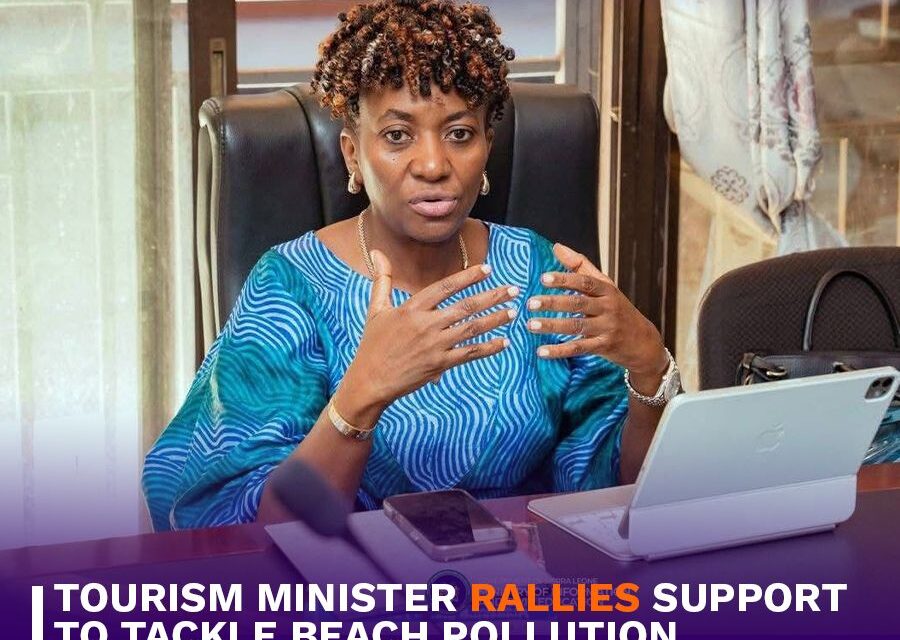By Davida Spaine Solomon
Freetown, September 24th 2025 – Minister of Tourism and Cultural Affairs, Nabeela Farida Tunis, has issued a strong call for collaboration among government institutions, private sector players, and citizens to confront the persistent pollution and seasonal challenges plaguing Sierra Leone’s beaches.
Speaking at a recent press conference in Freetown, Minister Tunis emphasized that while beach cleaning does not fall under her ministry’s official mandate, they have consistently stepped in over the years because the beaches are national assets that reflect the country’s image. “The dirt you see on the beach is being dumped by Sierra Leoneans into the waterways, which ends up on the beach,” she said. “We have consulted and engaged the relevant sectors, raised funds, and developed more than ten strategies to keep the beachhead clean.”
She explained that the ministry routinely anticipates difficult periods, especially during the rainy season when seaweed and debris are more common and issues public statements to alert citizens. Since June 2024, the ministry has been releasing press notices urging private sector support for beach cleaning initiatives.
One notable intervention came from Propel, a private sector organization that installed nets across Juba Creek to trap waste before it reached the beach. “That is why during the dry season you often see less dirt on the beach,” Minister Tunis noted, adding that while the approach has proven effective, it is not sustainable without broader support.
The minister also raised concerns about abandoned ships along the coastline, which she said undermine the natural beauty of the beaches. “In just two weeks, I saw two ships hit the shores. They are an eyesore,” she said. One ship near the Chapter One area has already been dismantled, and she expressed hope that the process would be expedited to remove others.
On the issue of seaweed, Minister Tunis described it as a seasonal occurrence. Last year, the ministry harvested about 30 bags and supplied them to agricultural companies for use. She also highlighted partnerships with organizations such as Environs Solutions, which transformed plastic bottles collected from beaches into marketable products.
Despite these efforts, she reiterated that her ministry does not have the legal mandate to lead major waste management initiatives. “Anyone can clean the beach,” she said. “Our role is to collaborate and support, not to take over the responsibilities of other institutions.”
Meanwhile, the General Manager of the National Tourist Board, Madam Fatmata Mida Carew, provided an update on the seaweed-cleaning machine purchased by the board. She confirmed that while the machine remains operational, it faces challenges due to mixed debris. “The machine was designed for seaweed, but because the seaweed comes with plastics and other waste, it gets stuck. However, it is still there and workable,” Madam Carew stated.
Minister Tunis concluded by appealing to the media to help raise awareness about the consequences of dumping waste into waterways and to encourage citizens to share innovative solutions. “This is about our country’s image,” she emphasized. “We are not blaming institutions, but we must work together to protect our beaches.”









